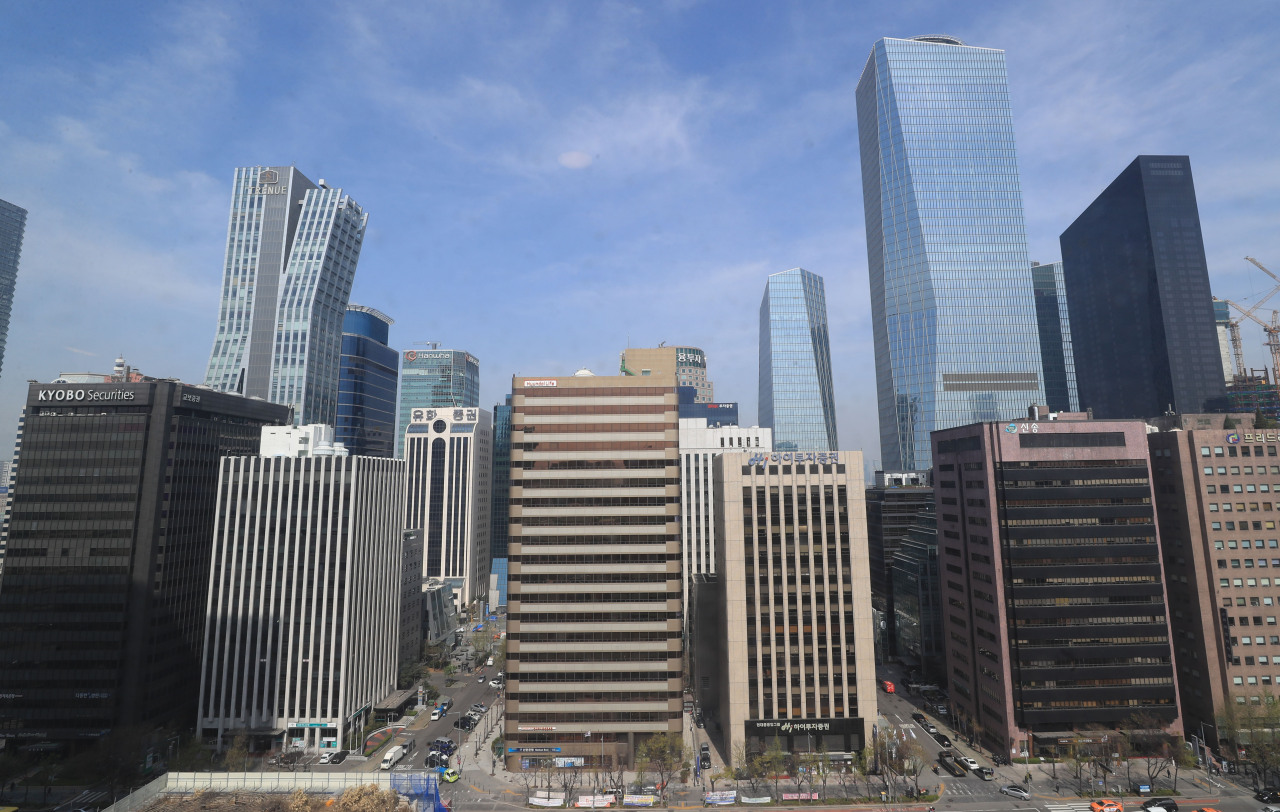South Korean companies seeking to go public are being sent back to the drawing board time and again, as the Financial Supervisory Service insists on clearer grounds for proposed share prices in its attempt to prevent overvaluation.
Whether intended or not, this often leads to the downward revision of the price band by companies seeking initial public offerings, according to market observers, who stress growing macroeconomic uncertainties in the liquidity-driven market and a lack of consistency in pricing methods.
The latest example of SD Biosensor indicates that the financial watchdog’s efforts to stop overvalued IPOs have been somewhat successful.
The Suwon-based test kit maker, which debuted on the Korea Exchange’s main board, Kospi, Friday, saw its shares close at 61,000 won ($53.50) apiece, up 17.3 percent from the 52,000 won set during the book building earlier in July.
The Friday closing price gave SD Biosensor a market cap of 6.3 trillion won. But this is still smaller than the proposed company valuation -- at least 6.8 trillion won -- in its initial IPO attempt in May.
SD Biosensor’s IPO had been delayed twice because the financial authorities demanded corrections to its IPO prospectus.
SD Biosensor ended up lowering the IPO price band to between 45,000 won and 52,000 won apiece in its second attempt in June, down more than 30 percent from what was previously stated.
Game developer and publisher Krafton on July 1 had to cut its proposed IPO funding by more than 10 percent in response to a corrective request from the authorities a week prior, and consequently lowered the price band to between 400,000 won and 498,000 won.
Likewise, Kakao Pay, a financial technology company backed by Chinese e-commerce giant Ant Group, was also ordered to revise its prospectus Friday.
This indicates that as more capital flows into the IPO market from retail investors, the financial authorities are becoming more aggressive in their attempts to prevent businesses from making inflated promises and undermining investors’ reasonable judgments about IPOs.
Under the Capital Markets Act, the financial authorities can demand corrections to an IPO prospectus in the event of any false or uncertain description or the omission of material facts.
But no corrections were requested for 103 IPO prospectuses in 2019. Things began to change in 2020, when IPO bids by ordinary investors nearly doubled on-year. Out of 117 prospectuses, there were seven requests for corrections.
The need to protect nonprofessional investors has come under the spotlight with the rapid growth of the IPO market.
Forty IPOs in the first half led to 5.6 trillion won in funds raised, up threefold from the previous year, according to an estimate by consultancy IR Kudos.
The second half awaits more blockbuster IPOs, such as those from Krafton and Kakao Pay, as well as online-only lender KakaoBank and battery maker LG Energy Solution, among others, largely bumped up by the hefty valuation premium for technology-based companies.
However, analysts say the technology premium could lead to an inconsistency in corporate valuation before the company goes public, as the valuation of a company can be reasonable and demanding at the same time, depending on which approach is being taken.
For example, Krafton’s IPO price range could be “reasonable” from a pure valuation standpoint, but at the same time could be “demanding” because the popularity of tech-driven pandemic beneficiaries could “(make) it less attractive to investors buying at the time of IPO or right after,” said eBest Investment & Securities analyst Sung Jong-hwa.
By Son Ji-hyoung (
consnow@heraldcorp.com)




![[Herald Interview] 'Trump will use tariffs as first line of defense for American manufacturing'](http://res.heraldm.com/phpwas/restmb_idxmake.php?idx=644&simg=/content/image/2024/11/26/20241126050017_0.jpg)


![[Herald Review] 'Gangnam B-Side' combines social realism with masterful suspense, performance](http://res.heraldm.com/phpwas/restmb_idxmake.php?idx=644&simg=/content/image/2024/11/25/20241125050072_0.jpg)
![[Health and care] Getting cancer young: Why cancer isn’t just an older person’s battle](http://res.heraldm.com/phpwas/restmb_idxmake.php?idx=644&simg=/content/image/2024/11/26/20241126050043_0.jpg)